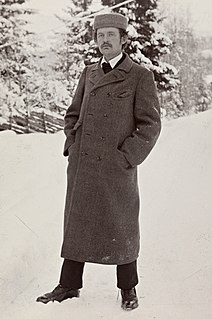A Quote by Hanya Yanagihara
Between their rise in the thirteenth century and their sudden fall in the seventeenth, when the line abruptly ended, the Medicis produced three popes, two queens, and many Florentine rulers, and they supported the work of Galileo, Michelangelo, Leonardo, and Botticelli - a veritable parade of geniuses.
Related Quotes
The world has witnessed the rise and fall of monarchy, the rise and fall of dictatorship, the rise and fall of feudalism, the rise and fall of communism, and the rise of democracy; and now we are witnessing the fall of democracy... the theme of the evolution of life continues, sweeping away with it all that does not blossom into perfection.
Homosexuality is assuredly no advantage, but it is nothing to be ashamed of, no vice, no degradation; it cannot be classified as an illness; we consider it to be a variation of the sexual function, produced by a certain arrest of sexual development. Many highly respectable individuals of ancient and modern times have been homosexuals, several of the greatest men among them (Plato, Michelangelo, Leonardo da Vinci, etc.). It is a great injustice to persecute homosexuality as a crime--and a cruelty, too. If you do not believe me, read the books of Havelock Ellis.





































